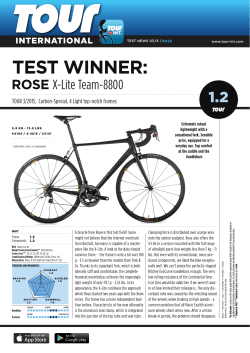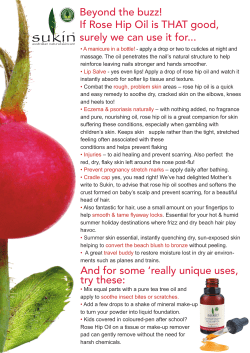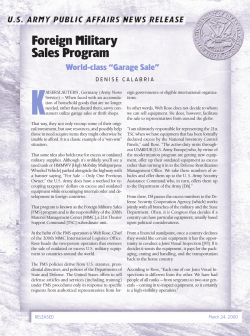
Nurture Joy - Penny Price Aromatherapy
Nurture Joy Ingredients Rosewood INCI Name Properties Aniba rosaeodora Rosewood has not been widely used in traditional medicine systems, rather as a material for making furniture. However, its essential oil is reportedly useful for the relief of nervous tension. Linalool is the major constituent of rosewood oil constituting 8295% (Price and Price, 2011). In support of these claims, research has shown linalool to exert a relaxant effect on the central nervous system in a mouse model (de Fatima et al., 2012) and an anxiolytic effect in a small trial of 24 human subjects using physiological parameters of heart rate, blood pressure, electrodermal activity and salivary cortisol (Hofel, Christ and Buchbauer, 2006). Furthermore, rosewood oil is reportedly stimulating and uplifting for fatigue and useful for depression (Price and Price 2011). Bergamot Citrus bergamia Eucalyptus stageriana Eucalyptus stageriana Rose Absolute Rosa damascena Bergamot is traditionally used as a folk medicine in its native Italy for fever and parasitic worms, however, more recently bergamot has been recommended in aromatherapy for the treatment of stress induced anxiety and depression (Lawless, 1997). Limonene constitutes 26.7-42.5% of bergamot. It has been shown to exert sedative and anxiolytic effects in rats (de Almeida et al., 2012), which may explain their reported calming effects. Furthermore, Linalool constitutes 11% of bergamot oil (Price and Price, 2011), which may contribute to its anxiolytic effect. In a study of rats, bergamot oil was found to exert a stimulant effect on both brain activity, as measured by EEG, and behaviour, as measured by increases in exploratory behaviour (Bagetta et al., 2010). Stimulants reduce fatigue, which may be uplifting and help in improving the mood. The medicinal properties of eucalyptus staigeriana, besides its antibacterial activity, are not well reported or studied. However, in aromatherapy it has been used to calm anxiety (Price and Price, 2011). This could be due to its content of limonene, which makes up between 1 and 14% of eucalyptus stageriana oil (Price and Price, 2011), which was found to exert an anxiolytic effect upon rats (de Almedia et al., 2012). Futhermore, citral is a major component of Eucalyptus staigeriana. Citral has been shown in animal studies to exert antidepressant effects (Komori et al., 1995), so may be useful in improving mood. Rose absolute has been an important part of traditional Eastern culture for centuries, for example it has been scattered at Iranian marriages to ensure happiness and symbolise love. Furthermore, it has been used in meditation and prayer, suggesting rose is also calming. These uses are also reflected in their use in traditional Eastern medicine, where rose has been used to relieve nervous tension and lift depression (Boskabady et al., 2011). A clinical trial found that inhalation of 2% rose absolute solution for 3-7 minutes resulted in an approximate 40% decrease in sympathetic nervous system activity (measured by systolic blood pressure, heart rate and blood catecholamine levels) (Haze, Sakai and Gozu, 2002). Sympathetic nervous system activity increases in stressful situations so its decrease supports rose’s use for relaxation.
© Copyright 2025











